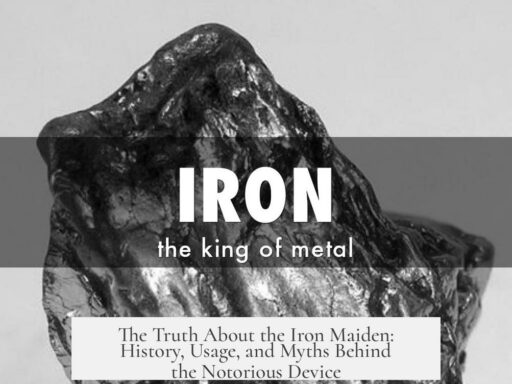In 1948, Dwight D. Eisenhower confronted Leslie Groves with a list of complaints that effectively ended Groves’ military career despite the success of the Manhattan Project. This list criticized Groves’ behavior, leadership style, and ability to operate in the peacetime military environment, rather than his accomplishments during the wartime atomic bomb project.
At the time of the meeting on January 30, 1948, Groves was leading the Armed Forces Special Weapons Project. This new role was drastically different from his wartime position managing the Manhattan Project, which required urgent industrial coordination and engineering leadership. The postwar environment emphasized peacetime military culture and a different type of collaboration, where Groves’ previous methods caused friction.
Eisenhower’s complaints included issues related to Groves’ rudeness and arrogance. Groves was reportedly rude and ruthless toward fellow officers who obstructed his objectives. His single-minded pursuit of goals often disregarded established military rules and protocols. Eisenhower noted that Groves frequently sought promotion through manipulation or “tricks” instead of following the usual channels of earning advancement by accruing years of service and experience respected by his peers.
- Groves showed contempt for military hierarchy and regulations.
- Fellow officers found him difficult and abrasive.
- He lacked the diplomatic skills valued in peacetime command.
Groves also struggled with the Army’s promotion system. At that time, Groves was considered too young for senior roles such as Chief of Engineers, and the military’s “up or out” policy limited his advancement opportunities. Unlike combat leaders like Eisenhower or MacArthur, Groves was an engineer and project manager rather than a battlefield commander. Eisenhower preferred promoting officers with distinguished combat records rather than those associated with home-front projects like the Manhattan Project.
Groves’ leadership style, effective during the Manhattan Project’s crisis-driven efforts, clashed with the peacetime military culture. Eisenhower saw Groves as unable or unwilling to adjust from a wartime industrial manager into a peacetime military leader. The shift from the project’s “crash” production mentality to routine operations revealed Groves’ poor fit with the new strategic and organizational climate.
The meeting was described as a dressing-down where Eisenhower conveyed how Groves’ conduct would block any further progress toward top military posts. Groves resigned shortly afterward, officially retiring in February 1948. Despite these criticisms, he was promoted to lieutenant general just before retirement to honor his leadership of the bomb program.
| Complaints Eisenhower Raised | Details |
|---|---|
| Rudeness and Arrogance | Unpleasant interactions with officers, perceived as dismissive and rude. |
| Single-mindedness | Relentless pursuit of goals ignoring collaboration and military norms. |
| Disregard for Rules | Bending or ignoring established military rules and procedures. |
| Manipulative Advancement | Attempting to advance by unorthodox means rather than seniority. |
| Inability to Adapt | Failed to adjust from wartime project management to peacetime military leadership. |
| Unfit for Promotion | Too young for senior roles and lacked battlefield credentials favored by Eisenhower. |
Leslie Groves was a highly capable and effective engineer. He graduated near the top of his West Point class and led the construction of the Pentagon before directing the Manhattan Project. His skills suited a wartime context where industrial scale and urgency dominated. However, Eisenhower and other postwar military leaders valued traditional command experience, diplomacy, and adherence to military culture, qualities Eisenhower found lacking in Groves.
Groves’ career highlights the difference between success in specialized technical leadership during wartime and the broader leadership skills required for long-term military command roles. The underlying reasons for Eisenhower’s low opinion of Groves were rooted in behavior and adaptability, not the scientific or technical achievements of the Manhattan Project itself.
- Groves was effective but abrasive and rule-breaking in his leadership style.
- His peacetime military career was limited by a culture favoring combat leaders.
- Eisenhower’s 1948 complaints focused on character and leadership traits, not accomplishments.
- Groves retired soon after the meeting, honored but sidelined.
What were the main complaints Eisenhower had about Leslie Groves in 1948?
Eisenhower accused Groves of arrogance, rudeness, insensitivity, and disregarding rules. He also criticized Groves for using tricks to advance his career rather than earning promotion through standard service.
Why did Eisenhower view Groves negatively despite his success with the Manhattan Project?
Groves excelled in wartime project management but struggled with peacetime roles. His authoritarian style clashed with military culture after the war, and he failed to adapt to the new command environment dominated by combat leaders.
How did Groves’ career end after Eisenhower’s complaints?
Groves was told he would never become Chief of Engineers. With limited options, he resigned from the Army shortly after and retired in February 1948, just after getting promoted to lieutenant general for his Manhattan Project work.
Was Groves considered a war hero like Eisenhower or MacArthur?
No, Groves was an engineer managing an industrial effort, not a battlefield commander. This difference affected how military leadership valued his contributions in the postwar Army structure.


